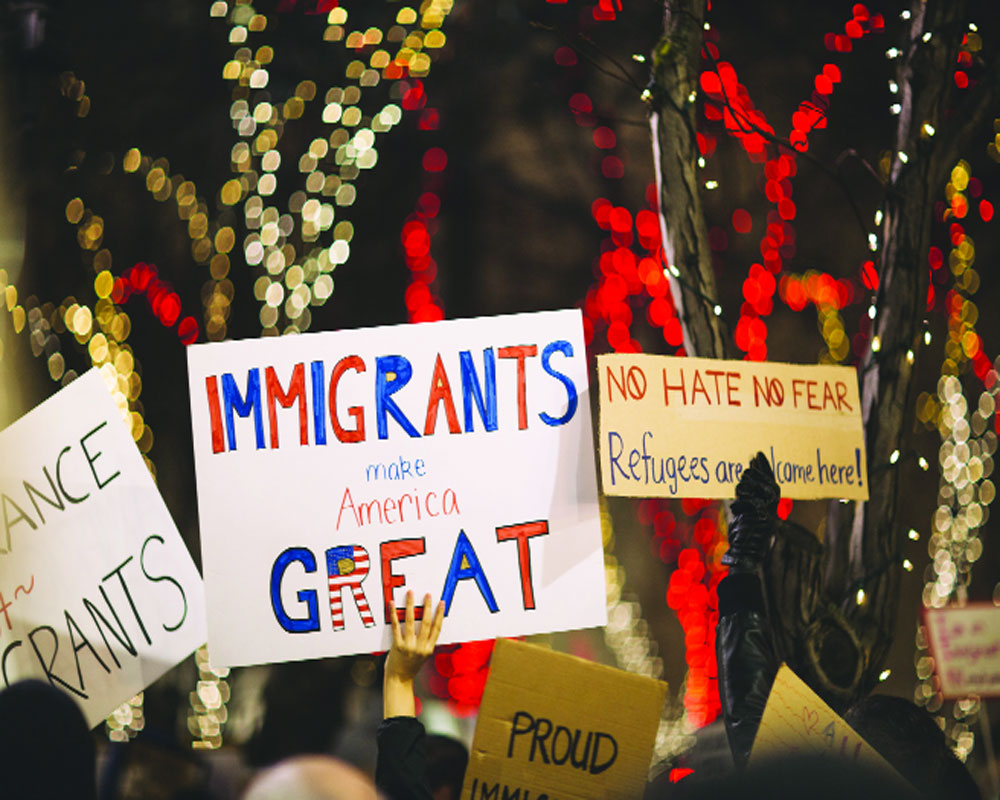With Trump intending to deport foreign students whose classes have moved online, Indians are badly affected
US President Donald Trump has done it again, played up a nativist pitch in an election year under the pretext of mitigating COVID-19 by asking foreign students to leave the country or risk deportation if their universities switch to online-only courses. Of course, students at those institutions offering hybrid courses, online and offline, are saved somewhat. Apart from creating uncertainty and confusion among foreign students, who have paid up their course fees and are now desperately wondering if they can switch to institutions offering in-person courses to justify their stay, it has also affected those on the threshold of internships, job placements and training programmes. In fact, many observers feel that this decision could be politically motivated to reduce the immigrant pie in the job market. Or it could be Trump’s manner of forcing institutions to consider the proposition of opening up. Universities across the US have by and large shifted to online classes as a post-pandemic course correction. Harvard, for example, has decided to hold all classes online, including for students living on the campus. So why should a meritorious student here even have to consider migrating to an institution that pursues the hybrid model just because it would allow him/her to stay? This means the US won’t issue visas to students enrolled in schools, exchange programmes and vocational courses that are fully online for the fall semester. Student visas for the US have always been complex and any mid-term cancellation would mean that a reissue or a renewal when the public health situation improves would be another hassle and result in a time lag. With so much of a potential workforce in disarray, clearly there is the larger idea of “American jobs going to Americans” at play here. But how can Trump justify the hit to the US education economy, though he may not particularly be fond of higher centres of learning because their products turn out to be some of his harshest critics? Indians comprise over 18 per cent of international students and are the second highest immigrant student population. Universities, caught completely off guard, don’t want to lose revenue over and above the course fees. Students additionally pay for housing, amenities, food, transport and tuition. So imagine the costs involved as 1.2 million students, who could be affected by the visa scrap, had signed up at over 8,700 schools. Little wonder then that MIT and Harvard have appealed to federal courts to stall the order. Can the US afford to risk its credibility as a higher education destination and force a diversion to other countries? Can it afford to lose the Indian talent pool at a time when it is forging deeper strategic ties with us? Does it think that India will agree to bear the collateral damage of a move that’s primarily intended to weed out Chinese students, the biggest chunk of foreign students?
If the American Council on Education is to be believed, then the US administration caught it completely by surprise at a time when it was expecting appreciation for keeping the classes going. Besides, even if universities do decide to offer some real time classes by rotation and plan out a hybrid format, what would happen if the public health situation deteriorates in the fall, the expected time of a second wave, and universities have no option but to stick to only online courses? How would students be repatriated to their home countries given a slew of restrictions on international travel? Clearly, this ill-thought policy, intended to be a blanket ban on foreign students, some of whom may never return, has colleges and universities worried. Their administrative heads are scrambling to work on varying hybrid models to retain their students. Regardless of meritocracy or the fact that the US thrives on a higher degree of talent among immigrants, some of whom head giant corporations, Trump is just trying to pander to his home crowd and restore supremacist privileges of the White race. Otherisation, even if it enriches academia, as immigrants have done, makes for a good scapegoat at a time when even midland US is under the grip of the pandemic and the hopelessness of a grunting economy. By making changes to all kinds of immigration laws and preventing foreigners, Trump wants to project a vacuum where Americans could rebuild a future on their terms as their past was wrongfully overrun by settlers. Never mind the simplistic assessment but ordinary Americans will still buy this new hope despite their nation being a glaring example of COVID-19 mismanagement. The White House has even curtailed legal migration by suspending employment-based visas. Trump then has used the pandemic to his advantage, deploying it to push for an “Americans first” dream that he never intends to materialise. But sell it will in these dark times when we look for any excuse to absolve ourselves of any wrong-doing. For in reality, it doesn’t matter if you physically attend one class or ten, the virus is still lurking around.


























